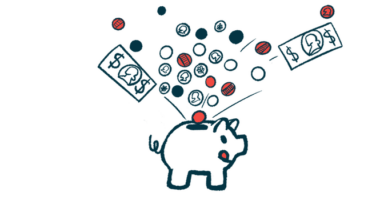Glycostem’s oNKord Cell-based Therapy Granted FDA Orphan Drug Designation

The U.S. Food and Drug Administration (FDA) has granted the designation of orphan drug to oNKord, Glycostem Therapeutics‘ cell-based therapy for the treatment of multiple myeloma, the company announced in a press release.
This designation is awarded to potential therapies that prevent, diagnose, or treat conditions that affect fewer than 200,000 people in the U.S. It provides several development incentives to bring a product quickly to market.
These incentives include guidance from the regulatory agency on developing medicines for rare diseases, exemption from certain FDA application fees, tax credits, and seven years of marketing exclusivity if approval is ultimately granted for the therapy.
oNKord is a cell-based therapy consisting of natural killer (NK) cells. These cells, part of the innate or inborn immune system, preferentially target tumor cells while leaving healthy tissue largely untouched. This lowers the risk of potentially lethal graft versus host disease, in which transplanted cells view the patient’s body as foreign and attack it.
Graft versus host is a concern in CAR T-cell therapy, which is another potential therapy option being actively explored as a myeloma treatment.
The NK cells used in oNKord come from stem cells found in umbilical cord blood. These stem cells can grow into a variety of mature cells found in the bloodstream, of which NK cells are one type.
This therapeutic strategy showed promise in an earlier Phase 1 study (NTR2818) in the Netherlands. The trial tested oNKord in 10 older people with acute myeloid leukemia (AML) in complete remission.
Four of those patients remained disease-free for up to five year (60 months), and two attained less than 0.1% detectable disease in their bone marrow — a status called minimal residual disease negative — for six months. The remaining six patients relapsed after an average time of one year.
The treatment also showed an “excellent safety profile,” according to the company, and helped 80% of participants live at least 12 months, compared with a one-year survival rate of 35% among patients without the intervention.
NK cell delivery can be used alone or as an add-on therapy, the company said, noting that this allows for some flexibility when designing a treatment regimen.
Glycostem plans to conduct two clinical trials using oNKord in the near future: a pivotal Phase 1/2a trial in AML, and a Phase 2 trial for multiple myeloma. The myeloma trial is expected to launch in 2021.
oNKord previously received orphan drug designations for AML from both the FDA and the European Medicines Agency (EMA).
“Since 2012 we have been pioneers in the field of developing and manufacturing off-the-shelf Natural Killer cell therapy products for cancer treatment,” said Troels Jordansen, CEO of Glycostem.
“It is great to experience that after receiving FDA and EMA [orphan drug] designation for AML, the FDA has also granted us this designation for [multiple myeloma]. This allows us to accelerate oNKord’s access to the U.S. market and our ultimate ambition: curing cancer,” Jordansen added.






